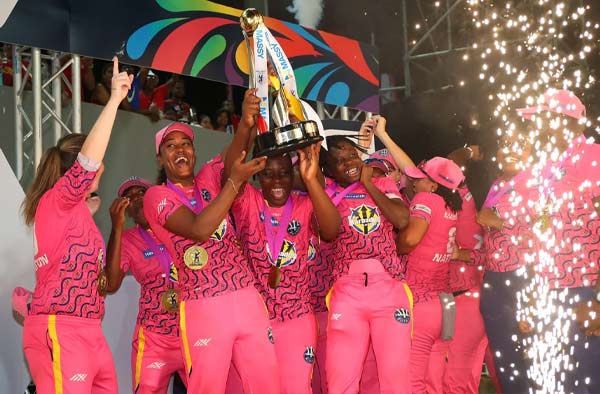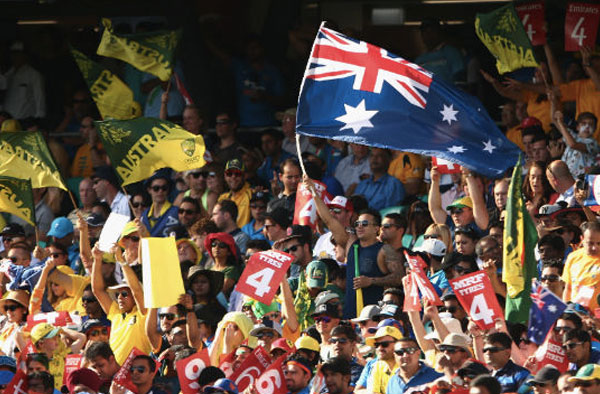Over the past few decades, women’s cricket has experienced a remarkable transformation, moving from the fringes of sports to a globally recognized and celebrated discipline. This shift has been largely driven by the rise of women’s cricket leagues worldwide, which have provided a platform for female cricketers to showcase their talents on a grand stage. These leagues have not only elevated the status of women in cricket but have also contributed to the overall growth and popularity of the sport. In this paper, we will explore the development of women’s cricket leagues, their challenges, and their impact on the global sports landscape.

The Emergence of Women’s Cricket Leagues
The history of women’s cricket can be traced back to the 18th century, but it wasn’t until the late 20th century that structured competitions emerged. The Women’s Cricket Association (WCA) was formed in England in 1926, laying the groundwork for organized women’s cricket. However, it wasn’t until the 1990s and early 2000s that the concept of women’s cricket leagues began to take shape.
One of the pioneering leagues was the Women’s National Cricket League (WNCL) in Australia, established in 1996. The WNCL provided a structured, competitive environment for Australia’s top female cricketers, setting a precedent for other nations. In the following years, more countries began establishing their own domestic women’s leagues. These leagues were instrumental in providing regular, high-quality competition for female players, allowing them to hone their skills and gain experience at a professional level.

The Expansion of Women’s Cricket Leagues Globally
In the 21st century, women’s cricket leagues have expanded rapidly across the globe. The Indian Premier League (IPL), one of the world’s most popular and lucrative cricket leagues, introduced a women’s exhibition match in 2018, paving the way for what would later become the Women’s Premier League (WPL). The WPL, launched in 2023, has attracted significant attention and investment, highlighting the growing interest in women’s cricket in India and beyond.
Similarly, England launched the Women’s Cricket Super League (WCSL) in 2016, later replaced by The Hundred in 2021, featuring both men’s and women’s teams. The Hundred has successfully promoted gender equality in cricket, with equal prize money and media coverage for male and female players. This model has inspired other countries to follow suit, integrating women’s leagues into their domestic cricket structures.
In New Zealand, the Super Smash League has featured both men’s and women’s teams since its inception, while South Africa’s Women’s T20 Super League has provided a platform for the country’s top female talent. The Caribbean Premier League (CPL) also introduced a women’s tournament in 2022, further expanding the reach of women’s cricket in the Americas.

One key driver behind the rise of these leagues is the increased visibility and media coverage of women’s cricket. Television and online streaming platforms have played a crucial role in bringing women’s cricket to a wider audience, leading to increased sponsorship and investment in the sport. As a result, women’s cricket leagues have become more financially viable, attracting top talent worldwide and offering competitive salaries that rival those in men’s leagues.
Challenges and Opportunities
Despite the progress made, women’s cricket leagues still face several challenges. One of the primary issues is the disparity in funding and resources between men’s and women’s cricket. While some leagues, like The Hundred and the WPL, have made strides toward equality, many others struggle to secure the same sponsorship and media coverage as their male counterparts. This disparity often results in lower pay for female players and fewer opportunities for them to compete professionally.
Another challenge is the perception of women’s cricket in some parts of the world. While countries like Australia, England, and New Zealand have embraced women’s cricket, others are still in the early stages of developing their women’s programs. Cultural and societal barriers can also limit the growth of women’s cricket in certain regions.

However, these challenges also present growth opportunities. The increasing popularity of women’s cricket leagues has sparked interest from fans, sponsors, and broadcasters alike. This growing interest has the potential to drive further investment in the sport, leading to more opportunities for female cricketers and a more level playing field with men’s cricket.
In addition to the traditional forms of cricket, there has been a surge in the popularity of different forms of entertainment, including online games. One such game is Aviator, an online casino game that has gained significant attention for its simple yet thrilling gameplay. Aviator earn money opportunities have attracted a diverse audience, including cricket fans who appreciate the strategic aspects of the game. This crossover between sports and gaming highlights the broadening appeal of both industries and the potential for collaboration and growth.
The Impact of Women’s Cricket Leagues
The rise of women’s cricket leagues has profoundly impacted the global sports landscape. These leagues have provided a platform for female athletes to excel and contributed to the broader conversation about gender equality in sports. Women’s leagues’ success has shown a strong appetite for women’s cricket among fans, sponsors, and broadcasters, challenging the traditional notions of what sports audiences are interested in.
Moreover, women’s cricket leagues have been crucial in inspiring the next generation of female cricketers. By showcasing the talents of female players on a global stage, these leagues have helped to break down stereotypes and encourage young girls to take up the sport. The visibility of women’s cricket has also led to increased participation at the grassroots level, with more girls joining cricket clubs and academies worldwide.
Integrating women’s cricket into mainstream sports culture has also opened up new opportunities for collaboration and innovation. For example, mixed-gender tournaments, like The Hundred, have successfully attracted diverse audiences and promoted gender equality in sports. These initiatives have set a precedent for other sports, demonstrating that gender-inclusive events can be both popular and profitable.
Conclusion
Women’s cricket leagues worldwide have come a long way in a relatively short period. From the early days of the WNCL in Australia to the global phenomenon of the WPL in India, these leagues have played a pivotal role in elevating women’s cricket’s status. While challenges remain, the future of women’s cricket looks bright, with increasing investment, media coverage, and fan support driving the sport forward.
The rise of women’s cricket leagues is a testament to the growing recognition of women’s sports and the potential for further growth and development. As more countries invest in their women’s cricket programs, we expect to see even greater achievements on the field and a continued push for gender equality in sports. The intersection of cricket with other forms of entertainment, like online gaming, also presents exciting opportunities for both industries, highlighting the evolving nature of sports and entertainment in the modern world.

Loves all things female cricket